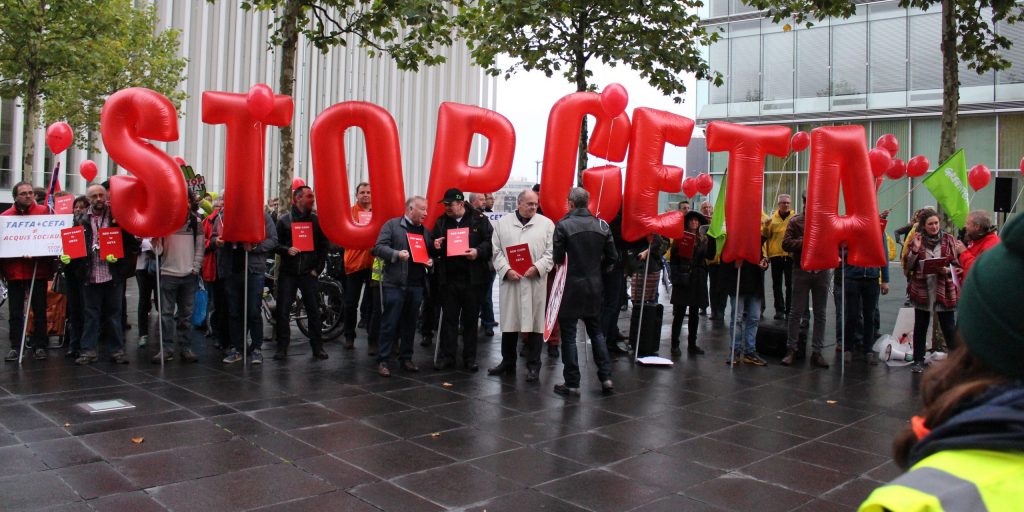Friends of the Earth Europe welcomes a decision by the European Court of Justice that trade agreements with investment provisions need to receive the scrutiny of national parliaments. The ruling comes at a time when citizens across Europe are increasingly concerned about the negative impacts of modern trade agreements, such as CETA and TTIP. They allow foreign investors to take governments to a business friendly tribunal if their profits are affected by public interest policies. A lack of democratic control has contributed to the strong public opposition to European trade policy.
In its ruling today, the European Court of Justice determined that investment provisions in the EU-Singapore free trade agreement make it a shared competence. The Court concludes that national parliaments will have to ratify this and similar future trade agreements. [1]
Paul de Clerck, economic justice programme coordinator at Friends of the Earth Europe, commented: “Involving national parliaments in the ratification of free trade agreements will increase the democratic scrutiny and give citizens a stronger voice. All future agreements that include investment tribunals will need to be ratified by national parliaments and we call on parliamentarians to reject all deals that include unfair VIP rights for foreign investors.”
In its agreement on the EU-Canada trade deal CETA, the Belgian government committed to seeking the opinion of the European Court of Justice whether the Investment Court System included in CETA is compatible with the EU Treaties. [3]
Paul de Clerck continued: “In autumn last year the Belgian government committed to request an opinion from the European Court of Justice on whether the Investment Court System included in CETA is even legal under EU law. After today’s ruling it is high time to make good on that commitment before more countries start ratifying a potentially illegal trade deal.”
[1] The Court ruled that portfolio investment and investor-state dispute settlement is a shared competence. This means that trade agreements controversial investment provisions, like the Investment Court System in CETA, will need to be ratified by all member state parliaments.




